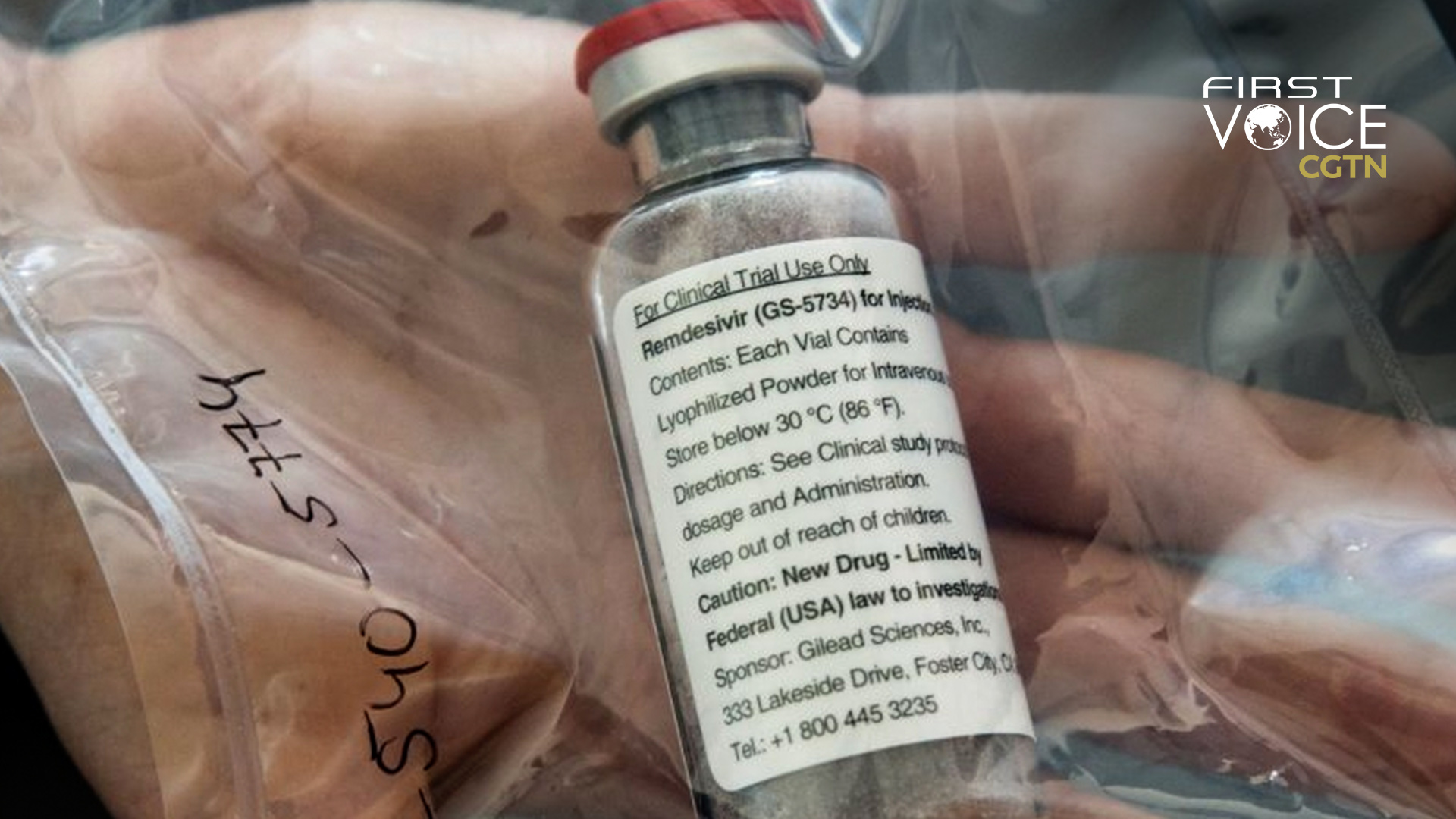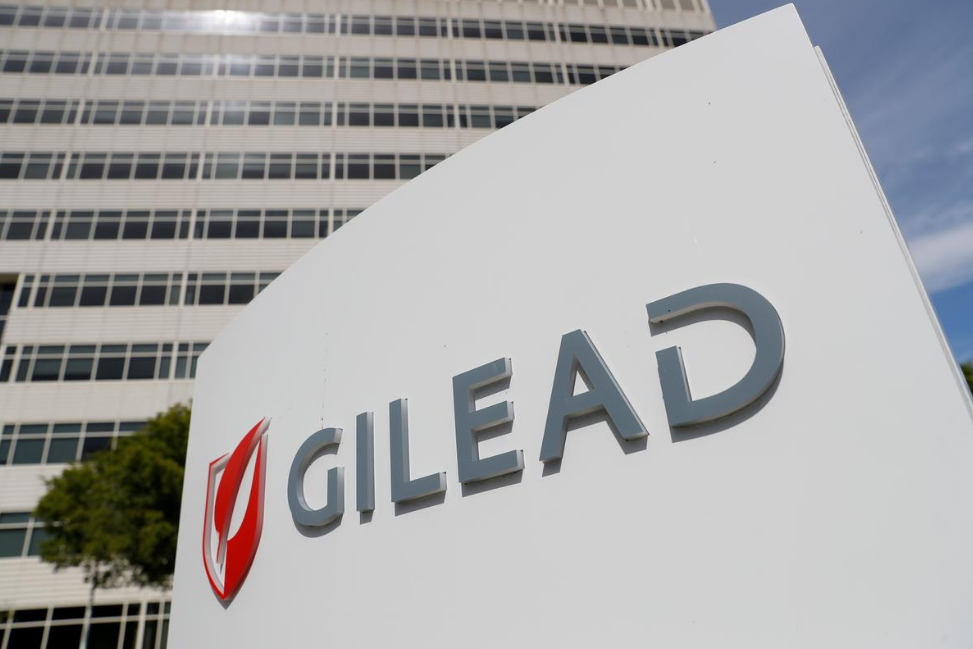
Editor's note: CGTN's First Voice provides instant commentary on breaking stories. The daily column clarifies emerging issues and better defines the news agenda, offering a Chinese perspective on the latest global events.
The United States has sparked global outrage again. This time, for buying almost all the global supply of remdesivir – one of only two drugs that have proven effective on COVID-19. The world's superpower has secured "100 percent of [drug-maker] Gilead's projected production for July, and 90 percent of production" for August and September, the U.S. health department announced this week.
American politicians may find their purchase fair and reasonable. After all, the U.S. has secured a position as the global leader in both COVID-19 cases and deaths. While an increasing number of countries have managed to curb the spread of the virus, the world's largest developed economy is still reporting an upward trend in the number of new cases.
But equitable access to drugs is vital in a global crisis. Washington's move means millions of COVID-19 patients outside the United States will have no access to the drug until October 2020 at the earliest. It's true that low- and middle-income countries are allowed to produce generic alternatives under the patent law. But only 127 states were licensed. France, Germany, the UK, and other American allies that have participated in trials of remdesivir are not on the list.
"The trial that gave the result that allowed remdesivir to sell their drug wasn't just done in the U.S. There were patients participating through other European countries, in the UK as well, and internationally, Mexico and other places," Peter Horby, a professor at Oxford University, was quoted by BBC as saying.
Washington's hoarding the global stock of remdesivir, leaving none for those making equal or more contributions to the drug, is a blow to international cooperation on COVID-19. The fight against a global enemy requires solidarity. But Washington is blatantly sacrificing other countries for self-interests.
This immediately sparked harsh criticisms from American allies. "By attempting to compete, I think we ultimately undermine all of our strategies. It is much better to work together than to work to undermine each other, so we will continue in that spirit," UK Business Minister Nadhim Zahawi lashed out at Washington's purchase in an interview with Sky News.

A Gilead Sciences Inc. office in Foster City, California, U.S. /Reuters
A Gilead Sciences Inc. office in Foster City, California, U.S. /Reuters
Hoarding remdesivir is not the worst thing. Washington's move triggered widespread concerns about the possibility of its monopoly of a COVID-19 vaccine if it is developed from an American firm.
It is worth noting that remdesivir's impact on curing COVID-19 is minimal. According to the Daily Mail, over 7 percent of those on remdesivir died, compared with 11.9 percent of those not on it. Given its selfishness over a drug that turns out to be of minimal effect, it's not difficult to predict the superpower's response to a vaccine that is believed to be a fundamental solution to the pandemic.
Canadian Prime Justin Trudeau is straightforward in showing his concerns about Washington's potential monopoly on a COVID-19 vaccine if is found. "It (the vaccine) cannot be just the wealthiest countries producing that vaccine for its citizens," the prime minister of Washington's traditional ally reportedly said.
It is not the first time that the U.S. has infuriated its allies under the "America First" doctrine. The superpower that is supposed to play a leading role in curbing the global pandemic has been repeatedly accused of diverting medical equipment bound for Europe onto its own soil. There are also reports that the U.S. offered "large sums of money" to a German firm for exclusive rights to a potential COVID-19 vaccine.
In the global fight against COVID-19, cooperation, not competition, is the way forward. Washington may regard the "America First" doctrine as useful to drag the country out from the global crisis. But for the rest of the world, Washington's selfishness means they will have to divert some of their efforts from combating the virus to preventing the U.S. from profiteering from the pandemic. This will tremendously dampen the international collaborations required in this fight. The U.S. is supposed to shoulder due responsibilities for the international community, but its "America First" is leading the world to nowhere.
Scriptwriter: Liu Jianxi
(If you want to contribute and have specific expertise, please contact us at opinions@cgtn.com.)